Home>Articles>How Long Does Homemade Chicken Stock Last In The Freezer


Articles
How Long Does Homemade Chicken Stock Last In The Freezer
Modified: February 27, 2024
Discover articles about the long-lasting benefits of homemade chicken stock in the freezer and how it enhances your culinary creations.
(Many of the links in this article redirect to a specific reviewed product. Your purchase of these products through affiliate links helps to generate commission for Storables.com, at no extra cost. Learn more)
Introduction
Welcome to our comprehensive guide on homemade chicken stock and how long it lasts in the freezer. If you’re someone who enjoys cooking from scratch or likes having quality ingredients on hand, then making your own chicken stock is a game-changer. It adds depth of flavor and richness to a variety of dishes, from soups and stews to sauces and risottos.
In this article, we’ll delve into the intricacies of chicken stock, exploring the differences between homemade and store-bought options, and provide helpful tips on freezing and storing homemade chicken stock for optimal freshness and flavor. So, let’s get started!
Key Takeaways:
- Homemade chicken stock can last in the freezer for 3-4 months, maintaining its quality and flavor if properly stored and labeled. It’s a versatile ingredient that adds depth to various dishes.
- Proper thawing methods, such as using the refrigerator or cold-water thawing, ensure the safety and flavor of frozen chicken stock. Pay attention to signs of spoilage and discard any stock that shows these signs.
Read more: How To Store Homemade Chicken Stock
Understanding Chicken Stock
Before we dive into how long homemade chicken stock lasts in the freezer, it’s essential to understand what chicken stock is and why it is a staple in many kitchens. Chicken stock is a flavorful liquid made by simmering chicken bones, meat, vegetables, herbs, and spices in water for an extended period.
The slow and gentle cooking process extracts the rich flavors, collagen, gelatin, and nutrients from the ingredients, resulting in a liquid that serves as the foundation for many savory dishes. Chicken stock is not only delicious but also provides various health benefits, such as supporting digestion, boosting the immune system, and promoting joint health.
When made from scratch, chicken stock allows you to control the ingredients and quality. By using high-quality chicken, fresh vegetables, and aromatic herbs, you can create a stock that is rich in flavor and free from additives or preservatives.
Homemade chicken stock is known for its depth of flavor, as it allows you to customize the ingredients, such as adding extra garlic, onions, or herbs, to suit your personal taste preferences. Additionally, you have the flexibility to adjust the seasoning and salt levels according to your dietary needs.
Understanding the difference between chicken stock and chicken broth is important. While the terms are often used interchangeably, there is a subtle distinction. Chicken stock is made primarily from simmering bones and may include some meat, while chicken broth is made by simmering meat and doesn’t typically contain bones. The use of bones in stock results in a richer, more gelatinous liquid, whereas broth might have a lighter, more clear consistency.
Now that we have a better understanding of chicken stock, let’s explore how homemade chicken stock compares to store-bought options in terms of flavor, quality, and convenience.
Homemade Chicken Stock vs Store-Bought
When it comes to chicken stock, you have the option to make it from scratch or purchase it pre-made from the store. Both options have their advantages and considerations, so let’s compare homemade chicken stock versus store-bought to help you decide which is right for you.
Flavor: One of the biggest advantages of homemade chicken stock is the depth of flavor it offers. By simmering the ingredients for an extended period, you extract maximum flavor from the bones, meat, vegetables, and herbs. This results in a more robust and complex taste that can elevate your dishes to new heights.
On the other hand, store-bought chicken stock may lack the same depth of flavor. It is often made using a quick-cook method, which doesn’t allow for the same extraction of flavors. Additionally, store-bought options may contain preservatives or additives that can alter the taste.
Quality: When making homemade chicken stock, you have full control over the ingredients and can ensure their quality. You can use organic, free-range chicken, fresh vegetables, and herbs of your choice. This ensures that you are using the best quality ingredients, resulting in a higher quality stock.
Store-bought chicken stock varies in quality, depending on the brand and their production methods. Some may use lower quality ingredients or additives to enhance flavor and extend shelf life. It’s essential to read the labels and choose a brand that aligns with your preferences for natural and high-quality ingredients.
Customization: Homemade chicken stock offers the advantage of customization. You can adjust the ingredients and seasonings to suit your taste preferences and dietary needs. It allows you to experiment with different herbs, spices, and aromatics, giving you full control over the flavor profile.
Store-bought chicken stock, while convenient, may offer limited customization options. You are restricted to the flavor and seasoning profile of the brand you choose, which may not align with your preferences or dietary restrictions.
Convenience: Store-bought chicken stock wins in terms of convenience. It is readily available, eliminating the need to spend time simmering ingredients and straining the stock. It’s a convenient option for those who don’t have the time or inclination to make stock from scratch.
Making homemade chicken stock requires time and effort. It involves simmering the ingredients for several hours, skimming impurities, and straining the stock. However, many people find the process rewarding and enjoy the satisfaction of homemade stock.
While both homemade and store-bought chicken stock have their merits, homemade stock allows for greater flavor control, quality assurance, and customization. Now that we understand the benefits of homemade chicken stock, let’s explore how we can freeze and store it to extend its shelf life.
Freezing Chicken Stock
Freezing is a common method for preserving homemade chicken stock and can extend its shelf life for several months. By freezing the stock, you can have a ready-to-use ingredient on hand whenever you need it. Here are some essential steps to follow when freezing chicken stock:
- Cooling: After cooking the chicken stock, allow it to cool completely at room temperature. This helps to prevent steam build-up, which can cause freezer burn.
- Container selection: Choose suitable containers for freezing, such as airtight plastic containers, resealable freezer bags, or ice cube trays. Make sure the containers are freezer-safe and have enough space to accommodate the stock.
- Dividing into portions: Portion the cooled chicken stock into smaller containers or bags based on your future usage needs. Dividing it into smaller portions allows for easier and more flexible use in recipes.
- Removing air: If using resealable bags, squeeze out as much air as possible before sealing them. This helps prevent freezer burn and maintains the quality of the stock.
- Labeling: Label each container or bag with the date of freezing. This will help you keep track of how long the stock has been in the freezer.
- Storage: Place the containers or bags in the freezer in a well-organized manner, ensuring they are kept upright to prevent leakage or spills.
It’s important to note that when freezing chicken stock, it will expand, so leave some headspace in the containers to allow for expansion. Additionally, consider the amount of chicken stock you typically use in recipes and freeze accordingly. This way, you can defrost only what you need, minimizing wastage.
Proper Storage Guidelines
Proper storage is key to maintaining the quality and safety of frozen chicken stock. Follow these guidelines to ensure your stock remains fresh and flavorful:
- Temperature: Set your freezer temperature to 0°F (-18°C) or below to ensure the stock remains frozen and safe to consume.
- Sealing: Ensure that the containers or bags used for freezing are tightly sealed to prevent air and moisture from entering. This helps to maintain the integrity of the stock and prevent freezer burn.
- Storage duration: Chicken stock can be stored in the freezer for up to 3-4 months. While it may still be safe to consume after this time, the quality and flavor may deteriorate.
- Organization: Keep your frozen chicken stock well-organized in the freezer, placing the newest containers at the back and older ones towards the front. This enables you to use them in a timely manner, following a first-in, first-out (FIFO) approach.
- Freezer location: Avoid storing the chicken stock near the freezer door, as this area is more prone to temperature fluctuations. Instead, place it in the coldest part of the freezer to maintain its frozen state.
Adhering to these guidelines will help preserve the quality and safety of your frozen chicken stock, ensuring it’s ready for use whenever you need it. Now, let’s explore the factors that can affect the shelf life of homemade chicken stock.
Homemade chicken stock can last in the freezer for up to 6 months if stored properly in an airtight container or freezer bag. Be sure to label with the date for easy reference.
Factors Affecting Shelf Life
Several factors can influence the shelf life of homemade chicken stock, even when it is stored in the freezer. Understanding these factors can help you maintain the quality of the stock and ensure its safety for consumption:
- Freezer temperature: Keeping the freezer temperature consistently at 0°F (-18°C) or below is crucial. Fluctuating temperatures can affect the integrity of the stock and may lead to bacterial growth.
- Container quality: The type of containers or bags used for freezing chicken stock can impact its shelf life. High-quality, airtight containers that are specifically designed for freezer use can help preserve the stock’s freshness and prevent freezer burn.
- Packaging: Proper packaging is essential to prevent air from coming into contact with the stock. Excessive exposure to air can cause oxidation and degradation of the stock’s quality over time.
- Stock quality: The quality of the chicken stock prior to freezing can affect its shelf life. Though homemade stock is typically made with fresh and high-quality ingredients, the overall freshness and flavor of the stock can impact its freezer storage duration.
- Storage time: While chicken stock can be stored in the freezer for several months, the longer it stays frozen, the more likely it is to experience quality degradation. It’s recommended to use frozen chicken stock within 3-4 months for optimal flavor.
Understanding these factors and taking the necessary precautions can help extend the shelf life of homemade chicken stock, ensuring it remains flavorful and safe to use in your favorite recipes. Next, let’s answer the burning question: how long does homemade chicken stock actually last in the freezer?
How Long Does Homemade Chicken Stock Last in the Freezer?
The shelf life of homemade chicken stock in the freezer can vary depending on several factors, including the quality of the stock, storage conditions, and packaging. In general, homemade chicken stock can last in the freezer for about 3-4 months.
It’s important to note that while the stock may still be safe to consume after this time, the quality and flavor may start to deteriorate. Freezing can cause changes in texture and taste over an extended period.
To ensure the best quality and flavor, it’s recommended to use the frozen chicken stock within the first 3-4 months. Beyond that, it may start to develop off-flavors or lose its richness.
Proper storage practices, such as using airtight containers, maintaining a consistent freezer temperature, and organizing your freezer, can help maximize the shelf life of homemade chicken stock. Following these guidelines will increase the likelihood that your stock remains fresh and delicious for the recommended timeframe.
Next, let’s discuss some signs that indicate your frozen chicken stock may have spoiled and should not be used.
Signs of Spoilage
It’s crucial to be aware of the signs that indicate your frozen chicken stock has spoiled. While freezing helps preserve the stock, it is not a foolproof method, and degradation can still occur over time. Here are some signs to look out for:
- Off odor: If the chicken stock emits a foul or rancid odor when defrosted, it is a clear indication of spoilage. Trust your sense of smell and discard the stock if it smells unpleasant.
- Unusual appearance: Examine the stock carefully for any visible signs of mold, discoloration, or cloudiness. If there are any strange textures or appearances, it’s best to discard it.
- Slimy texture: If the chicken stock feels slimy or has a slimy film on the surface when thawed, it is a strong sign of bacterial growth and spoilage. In this case, it is not safe to consume.
- Strange taste: When tasting the thawed chicken stock, if you notice an off or bitter taste, it indicates spoilage. Trust your taste buds and err on the side of caution.
If you observe any of these signs, it is essential to discard the chicken stock immediately, as consuming spoiled stock can lead to foodborne illnesses.
Remember, when in doubt, it’s always better to be safe than sorry. If you’re unsure about the quality or safety of the stock, it’s best to discard it and make a fresh batch.
Now that we know how to spot signs of spoilage, we can discuss the process of thawing and using frozen chicken stock in your culinary creations.
Thawing and Using Frozen Chicken Stock
When it’s time to use your frozen chicken stock, proper thawing is crucial to ensure its safety and quality. Here are some guidelines for thawing and using frozen chicken stock:
- Thawing in the refrigerator: The safest method for thawing frozen chicken stock is to transfer it from the freezer to the refrigerator. Leave it to thaw in the refrigerator overnight or for several hours until fully defrosted. This slow thawing process helps maintain the integrity of the stock.
- Quick thawing: If you need to use the chicken stock more urgently, you can use a cold-water thawing method. Place the frozen stock in a waterproof bag and submerge it in a bowl of cold water. Change the water every 30 minutes until the stock is thawed. It’s crucial to ensure that the packaging remains tightly sealed to prevent water from entering and compromising the stock’s quality.
- Avoid thawing at room temperature: Avoid thawing the chicken stock at room temperature, as it can enter the danger zone (40°F-140°F) where bacteria can multiply rapidly. Thawing at room temperature can also result in uneven thawing or partial thawing, leading to potential safety concerns.
- Using thawed chicken stock: Once the chicken stock is fully thawed, it is safe to use. Examine the stock for any signs of spoilage, such as an off odor or slimy texture. If it appears and smells normal, it can be used in a variety of recipes, such as soups, stews, sauces, or gravies. Feel free to get creative and experiment with different dishes that call for chicken stock.
Remember to follow proper food safety practices when using the thawed chicken stock. Store any unused portions in the refrigerator and use them within a few days to maintain freshness and avoid waste.
By following these guidelines for thawing and using frozen chicken stock, you can enjoy the convenience and flavor of your homemade stock in a variety of dishes.
Now, let’s wrap up this article.
Read more: How Long Does Raw Chicken Last In Freezer
Conclusion
Homemade chicken stock is a versatile and flavorful ingredient that adds depth and richness to your culinary creations. By understanding the proper freezing, storage, thawing, and usage techniques, you can make the most of your homemade chicken stock and ensure its longevity.
When it comes to freezing chicken stock, cooling it properly, choosing suitable containers, and labeling them with the date of freezing are essential steps. Following proper storage guidelines, such as maintaining a consistent freezer temperature and organizing your stock, can help prolong its shelf life.
Factors like freezer temperature, container quality, stock quality, and storage time can impact the overall quality and safety of your frozen chicken stock. Pay attention to signs of spoilage, such as an off odor, unusual appearance, slimy texture, or strange taste, and discard any stock that shows these signs.
Thawing the frozen chicken stock using safe methods, such as in the refrigerator or through cold-water thawing, ensures its safety and preserves its flavor. Once thawed, the chicken stock can be used in various dishes, enhancing their taste and providing a homemade touch.
Whether you choose to make homemade chicken stock or opt for store-bought options, knowing how to freeze, store, and use it effectively is essential for maintaining its quality and making the most of this flavorful ingredient.
So go ahead and experiment with homemade chicken stock in your favorite soups, stews, sauces, and more. With the knowledge gained from this guide, you can confidently stock your freezer and elevate your cooking to new heights!
Frequently Asked Questions about How Long Does Homemade Chicken Stock Last In The Freezer
Was this page helpful?
At Storables.com, we guarantee accurate and reliable information. Our content, validated by Expert Board Contributors, is crafted following stringent Editorial Policies. We're committed to providing you with well-researched, expert-backed insights for all your informational needs.
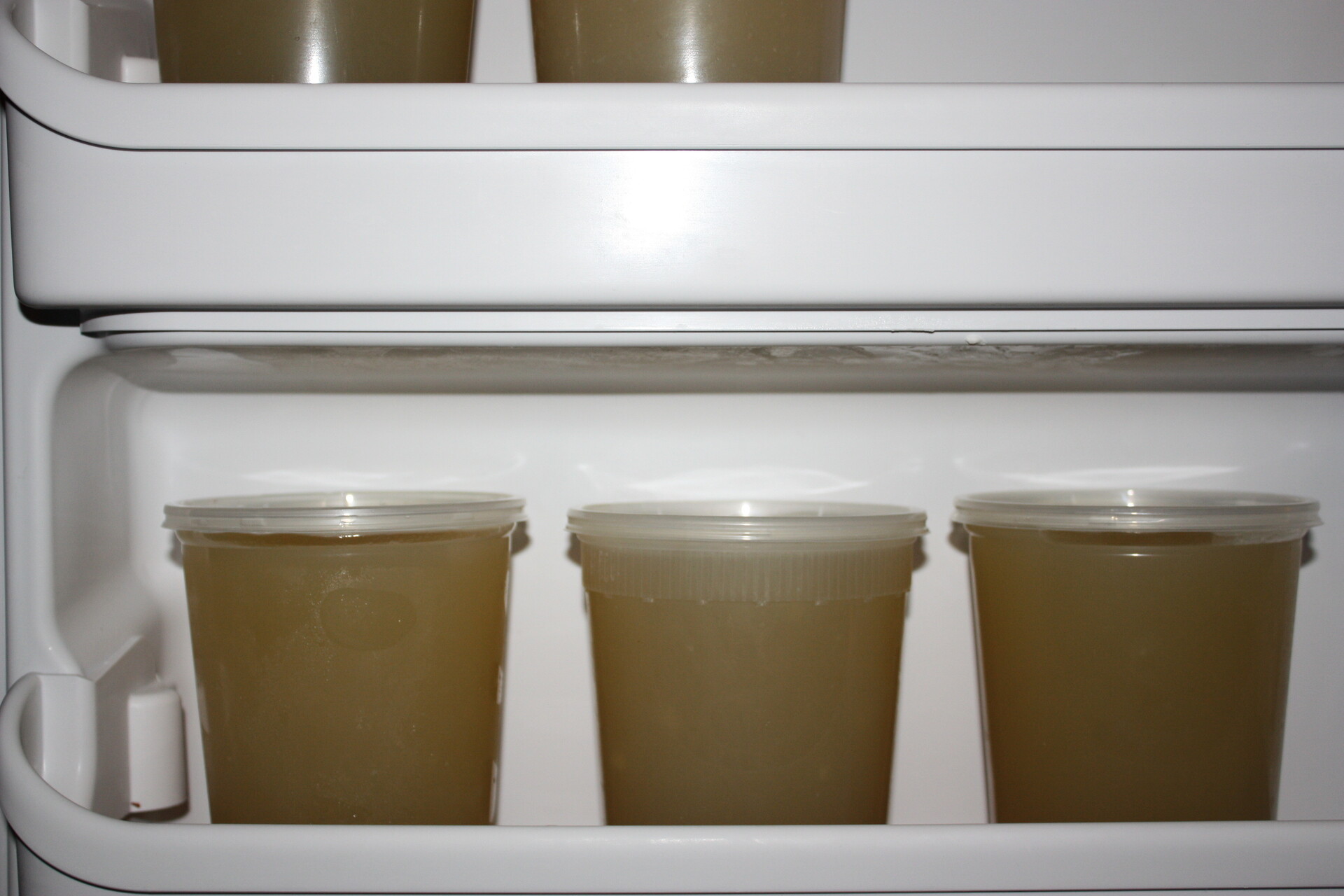



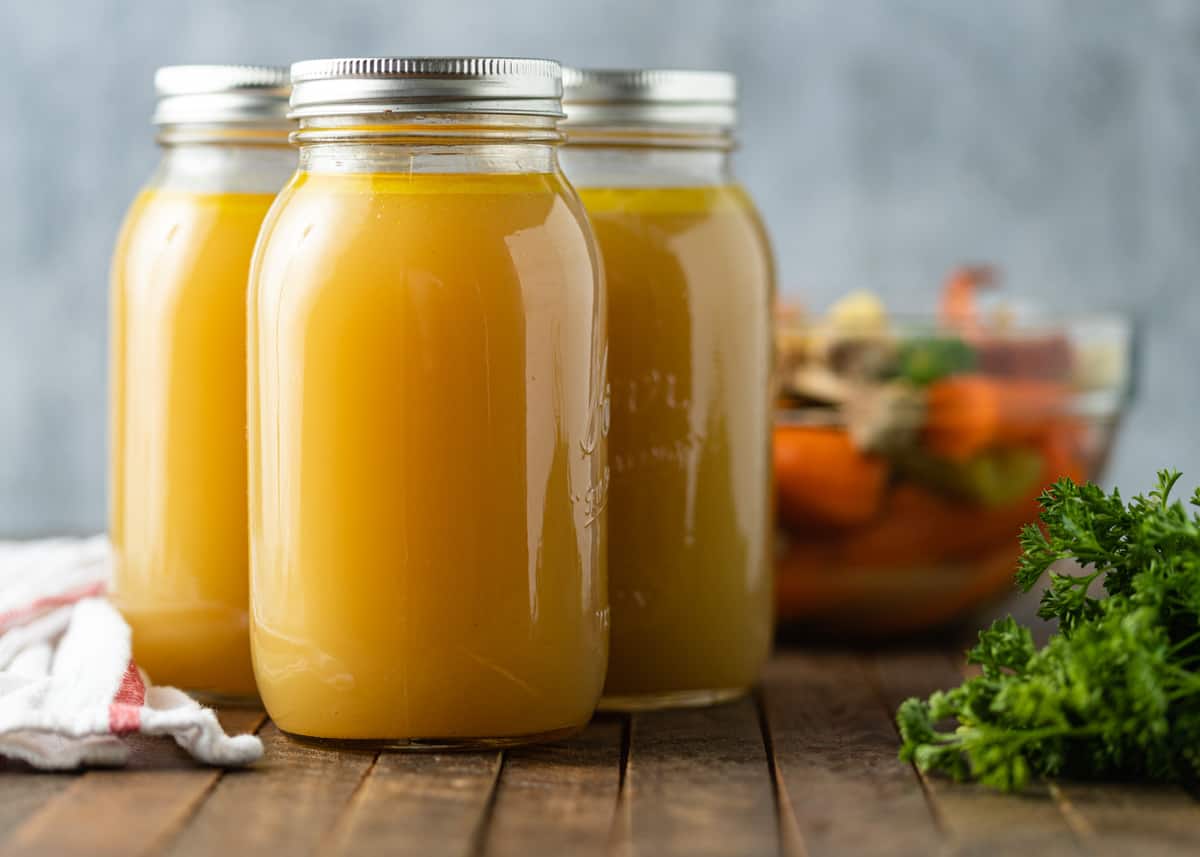
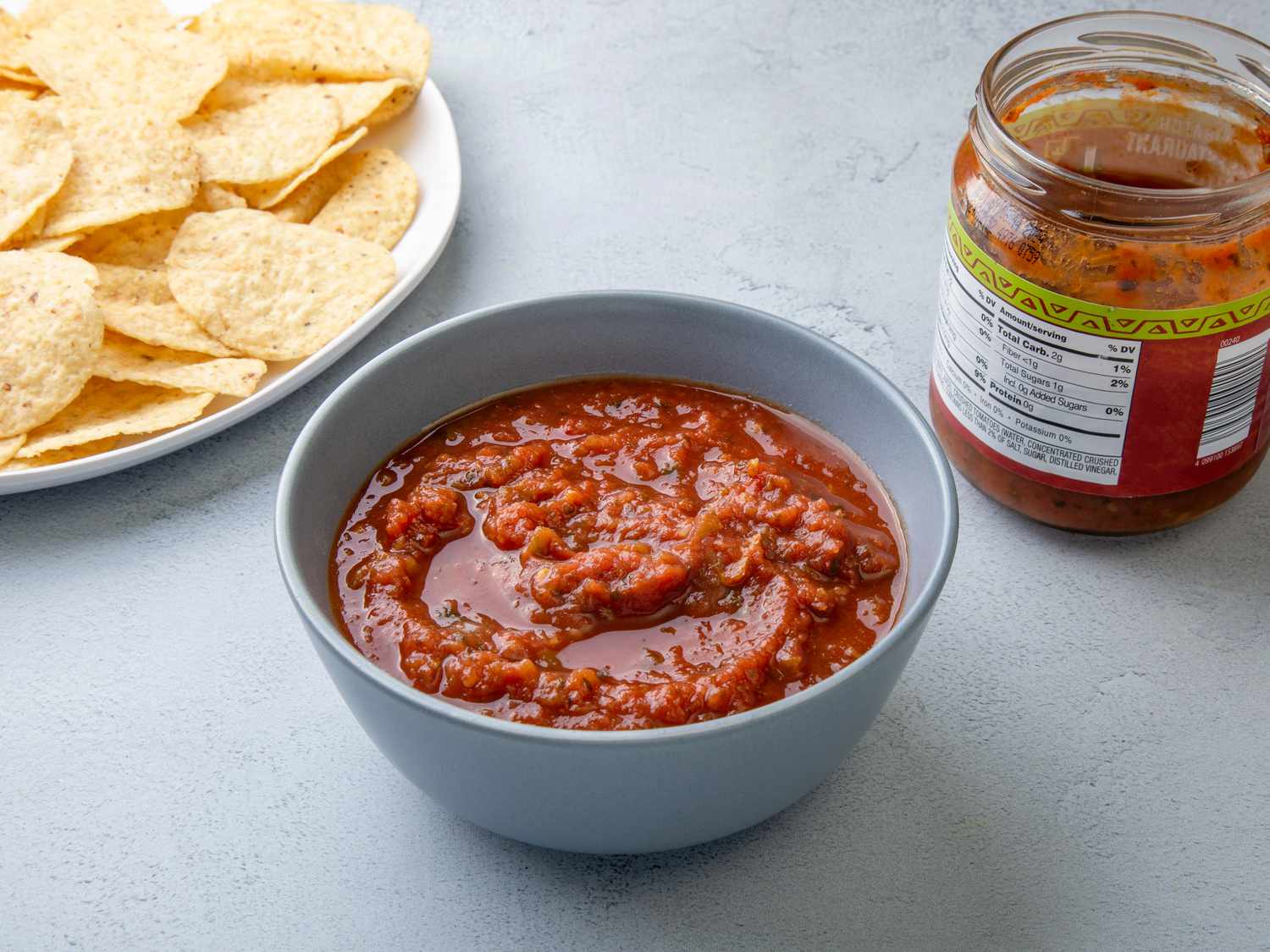

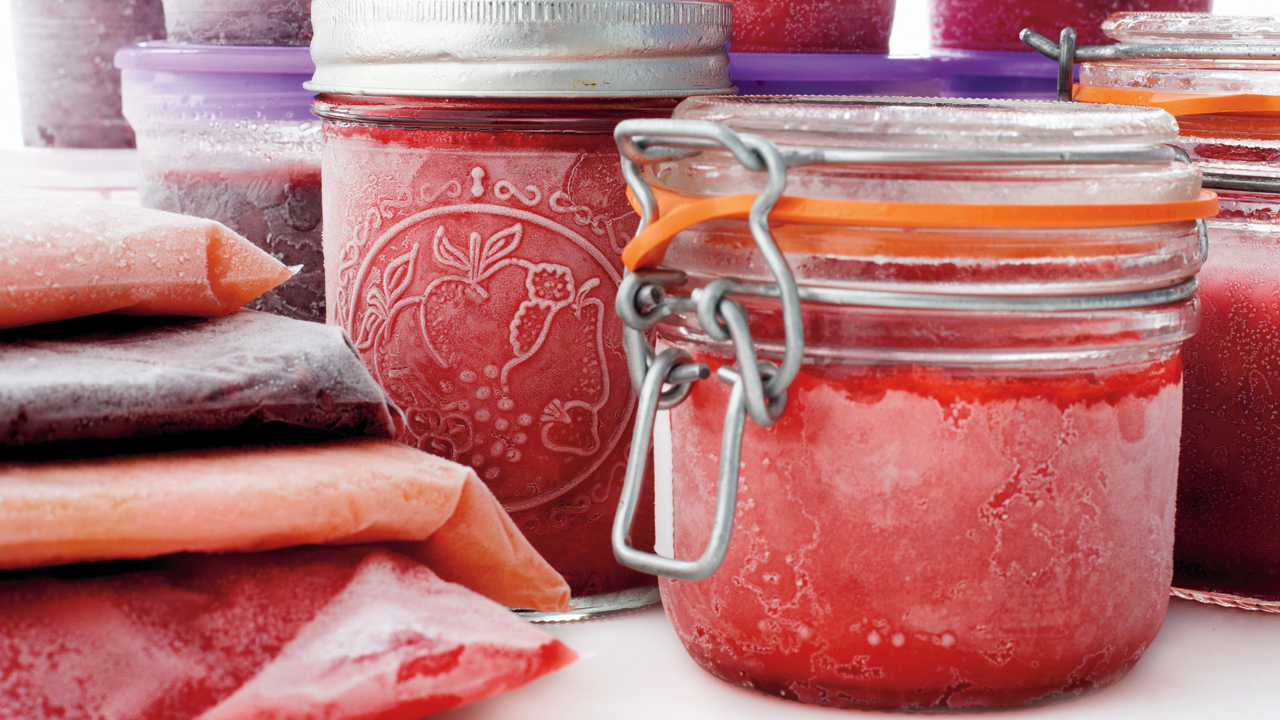

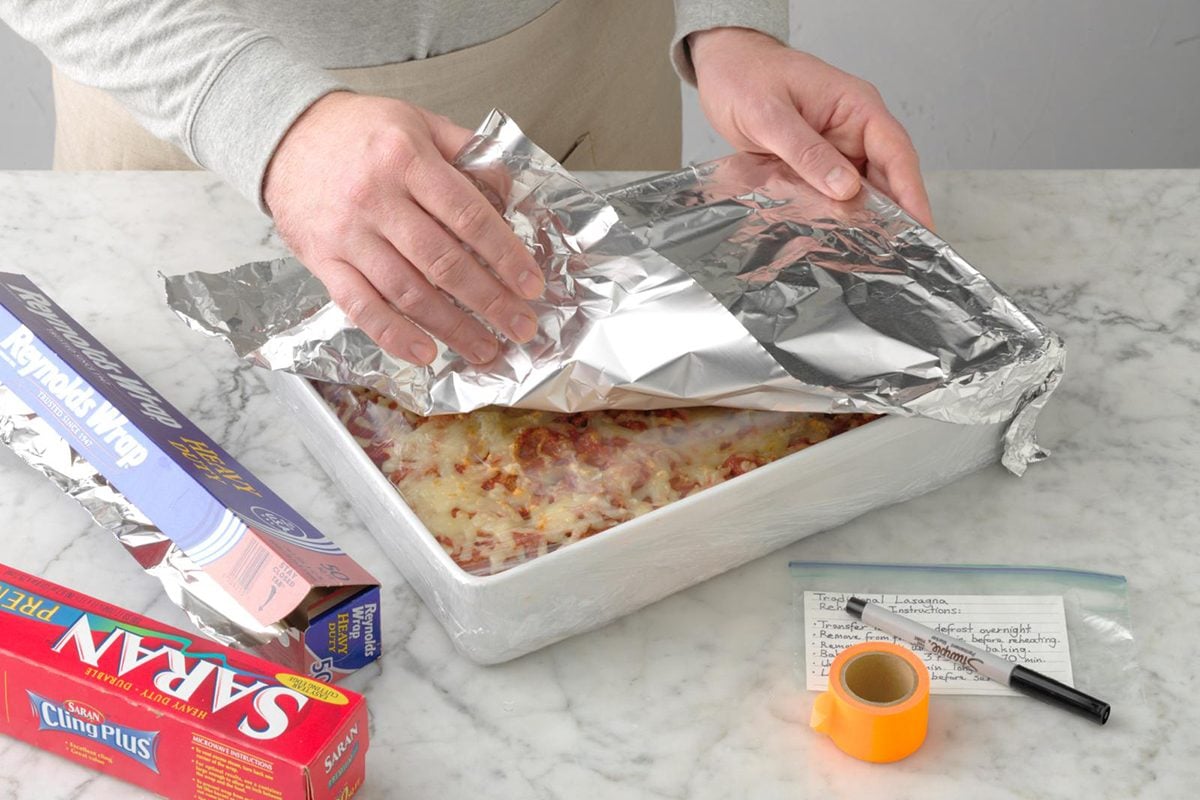

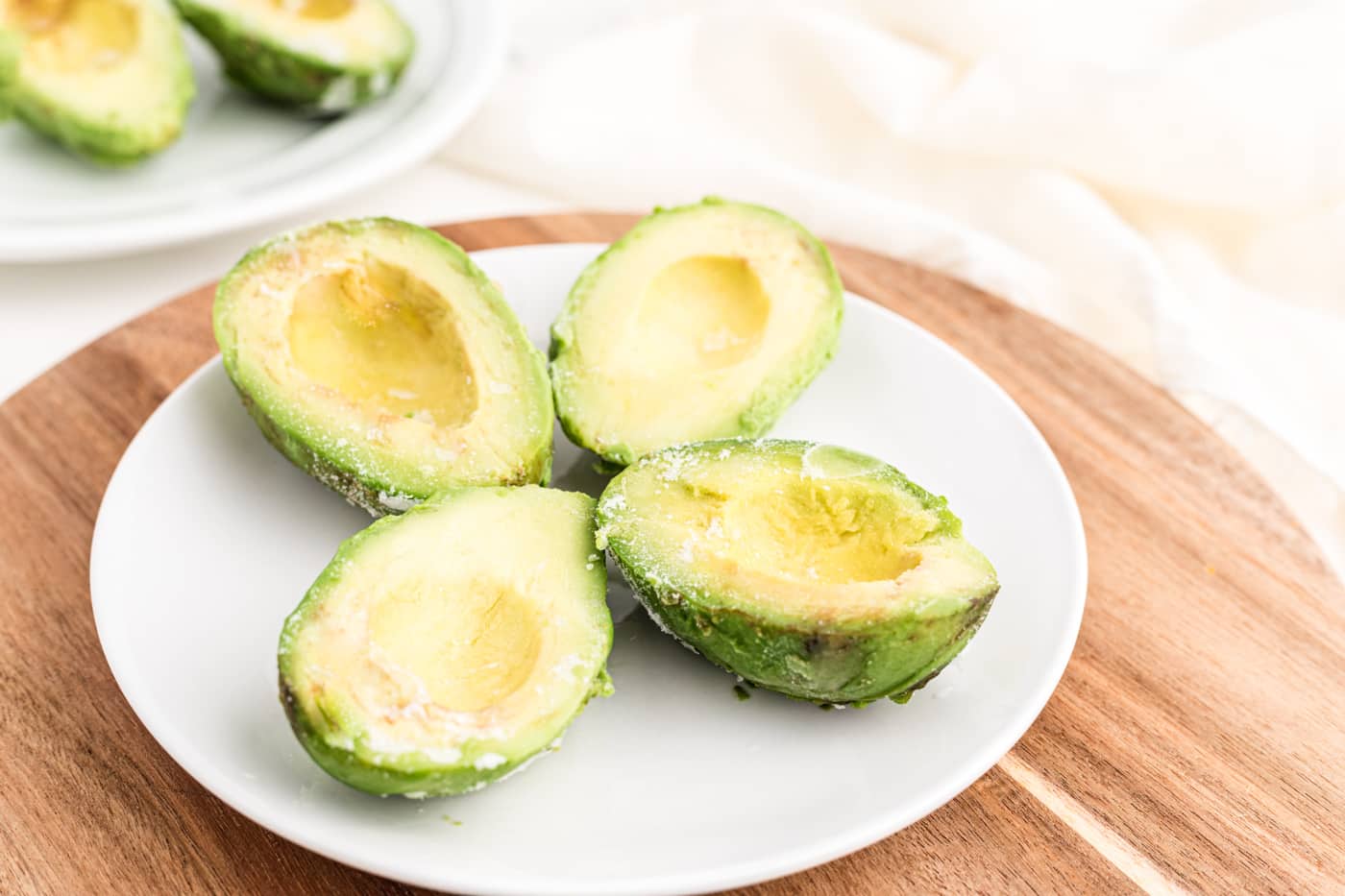
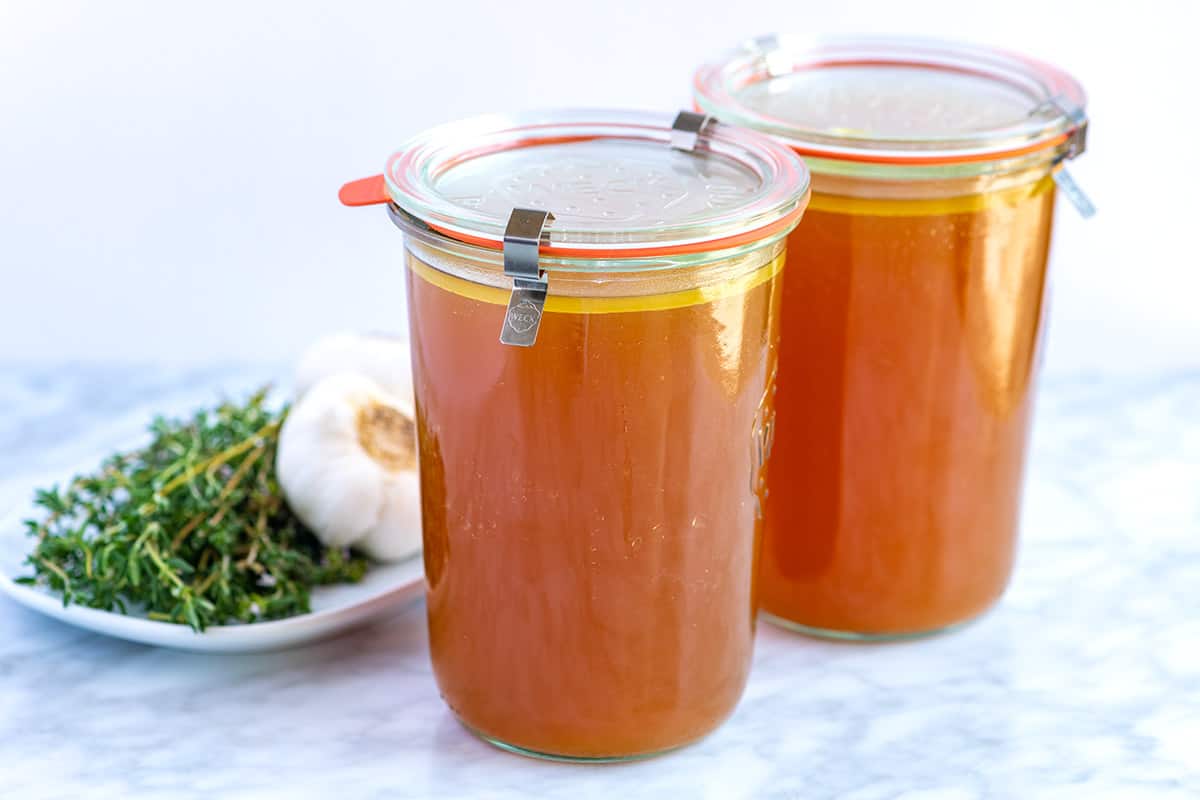

0 thoughts on “How Long Does Homemade Chicken Stock Last In The Freezer”